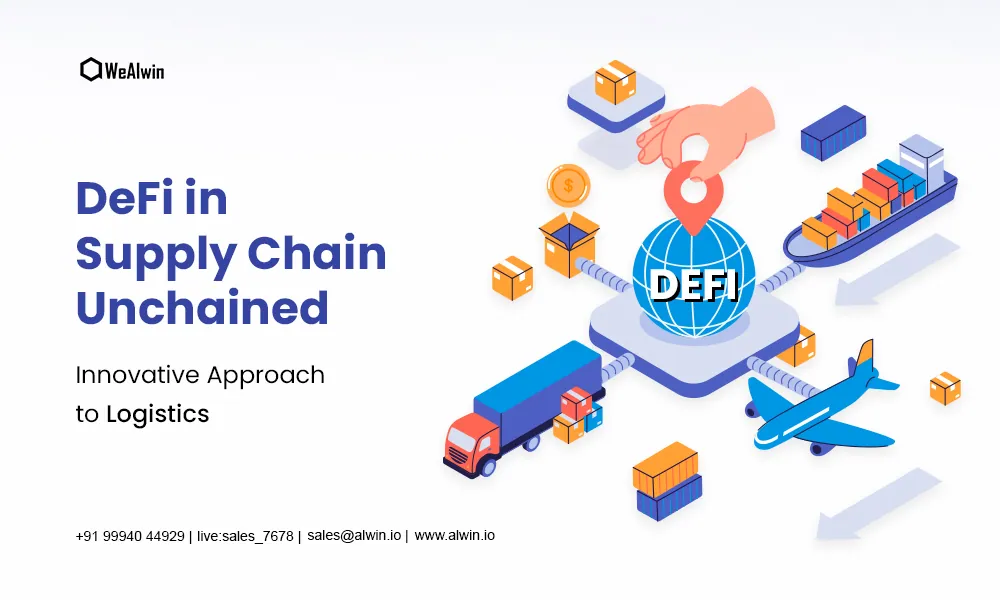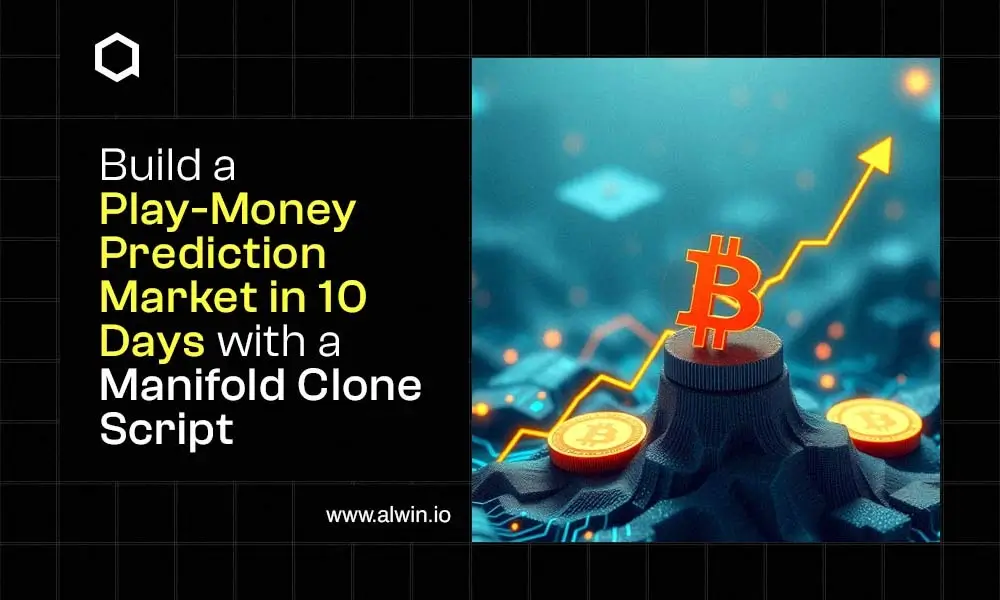In the world of supply chain management, efficiency is paramount. The timely movement of goods and the management of cash flow can make or break a business. Over the years, technology has played a significant role in optimizing supply chains.
But now, a new player has entered the scene, revolutionizing the way we think about financing in the supply chain: DeFi, or decentralized finance.
DeFi is going to highlight the importance of supply chain efficiency and cash flow management. It introduces the concept of Decentralization as a revolutionary way of supply chain financing.
Understanding Supply Chain Financing
Supply Chain Financing, in its essence, is a way for businesses to optimize their cash flow. It involves various financial instruments and techniques to ensure the smooth functioning of the supply chain. In a typical supply chain, delays in payments can lead to disruptions, impacting not only the financial health but also the reputation of the businesses involved.
This is how traditional supply chain financing works:
A buyer makes a purchase from a supplier.
The goods or services delivered by the supplier.
The invoice is approved by the buyer.
The buyer's bank or another financial institution pays the supplier on the buyer's behalf.
The buyer pays back the financial institution later, usually with interest.
How DeFi is going to Impact Supply Chain Financing?
DeFi is proving to be a game-changer in the world of supply chain financing. Its decentralized nature, powered by blockchain, creates an environment of trust and transparency. Smart contracts, and self-executing agreements with the terms of the contract directly written into code automate processes like payments, reducing the risk of disputes and delays.
DeFi Solutions in Supply Chain Financing
Several DeFi systems have arisen to address supply chain finance issues:
Tokenization of Real-World Assets: DeFi allows for the tokenization of real-world assets like invoices and purchase orders. It assists in the provision of liquidity to suppliers. These digital assets can be exchanged and used as collateral, providing suppliers with liquidity.
DEXs (Decentralised Exchanges): DEXs allow for the trade of digital assets such as tokens representing invoices or supply chain assets. This liquidity can be used to meet working capital requirements.
Smart Contracts: Smart contracts are self-executing agreements that automatically execute when predefined conditions are met. In supply chain financing, smart contracts can automate payment processes, ensuring timely payments and reducing the risk of disputes.
Stablecoins: Stablecoins are cryptocurrencies that are tied to the value of regular fiat currencies and are often utilized in DeFi supply chain finance. They provide stability in the face of the volatility of cryptocurrencies such as Bitcoin and Ethereum.
Decentralized Lending: DeFi platforms enable businesses to access decentralized lending pools, providing a more accessible and cost-effective way to secure financing for their supply chain needs.
Oracles: Oracles are data providers who inject real-world data into DeFi smart contracts. Oracles can give information on item delivery, invoice approval, and payment status in supply chain financing, ensuring contract execution accuracy.
Insurance: Leveraging decentralized finance for transparent and efficient insurance solutions in supply chains. It can be purchased by users to protect their goods, assets, or investments and to recover from damages in the supply chain.
Synthetic Asset: A synthetic asset is a digital asset that represents real-world assets like commodities or stocks. This utilizes DeFi tools to create synthetic assets for risk hedging and financial flexibility.
Money Market: DeFi money markets enable users to deposit assets and earn interest. Additionally, decentralized money markets optimize liquidity management and streamline financial operations in the supply chain.
Real-World Examples of DeFi in Supply Chain Financing:
1. Centrifuge:
Centrifuge is a DeFi platform that specializes in asset tokenization. It allows businesses to represent real-world assets, such as invoices or purchase orders, as digital tokens on the blockchain. In supply chain financing, asset tokenization can be used to turn invoices into tradable tokens, enabling companies to secure financing by selling these tokens to investors, thus optimizing cash flow.
2. TrustToken:
TrustToken is a platform that allows for the creation of tokenized assets backed by real-world collateral. This technology can be applied to supply chain financing by tokenizing assets like inventory or receivables. These tokens can then be sold to investors, providing immediate liquidity to businesses. The transparent and auditable nature of blockchain ensures the authenticity of the tokenized assets, building trust among stakeholders.
3. IBM:
IBM is collaborating with a number of organizations to develop blockchain-based supply chain financing solutions. IBM has created a service dubbed "Blockchain Trade Finance," which is specifically designed to assist firms in obtaining funding for their trade operations.
4. We.trade:
We.trade is a blockchain-based platform that banks use to provide business funding. We.trade has collaborated with a number of banks, including HSBC, ING, and Santander.
5. Maersk:
Maersk is collaborating with IBM to create a blockchain-based trade finance platform. The technology, dubbed "TradeLens," is intended to make it easier for enterprises to obtain funding for trade operations.
These real-world examples showcase the diverse ways in which DeFi is transforming supply chain financing. DeFi is offering innovative tools to optimize cash flow, reduce costs, and enhance transparency in supply chain operations.
Advantages of DeFi in Supply Chain Financing:
The advantages of incorporating DeFi into supply chain financing are manifold.
They are,
Decentralized Smart Contracts
Smart contracts are used by DeFi systems to automate and streamline supply chain financing procedures. These self-executing contracts make it easier for buyers, suppliers, and financiers to reach an agreement. They reduce the need for middlemen.
Traceability and transparency
Blockchain technology creates an immutable ledger that records every transaction that takes place along the supply chain finance process. It increases openness and trust among participants, lowering the risk of fraud and allowing for real-time tracking of items and payments.
Universal Accessibility
DeFi is available to everyone with an internet connection, removing geographic limitations. It gives firms access to a worldwide pool of suppliers and funders, expanding their supply chain financing alternatives.
Cost Reduction
When compared to traditional financial institutions, DeFi platforms typically feature reduced transaction fees. Both buyers and suppliers gain from this cost-effectiveness.
Faster Processing Time
Decentralized financial development solutions are more efficient due to work automation and less bureaucracy. Suppliers can receive payments quickly, which improves their cash flow.
Accessible to Global Market
Perhaps most importantly, DeFi makes supply chain financing more accessible to small and medium-sized enterprises (SMEs), leveling the playing field in the global market.
Case Studies
Several companies have embraced DeFi in their supply chain financing operations with impressive results. when incorporating DeFi with the supply chain which reduced payment processing times by 50% and eliminated disputes through the implementation of smart contracts.
Future Trends
The future of DeFi in supply chain financing is promising. We can expect to see more innovative solutions and greater adoption as the technology matures. The ability to tokenize assets and access global liquidity pools through DeFi platforms opens up a world of possibilities for supply chain optimization.
Conclusion
In conclusion, DeFi in supply chain financing represents a seismic shift in the way businesses manage their financial operations. It brings transparency, efficiency, and accessibility to a critical aspect of global commerce.
Are you ready to invest in the transformative potential of DeFi in supply chain financing?
Then WeAlwin is the best option for your dream DeFi Development project. Wealwin provides you with customized development based on your needs and tremendous support until your project launches.



